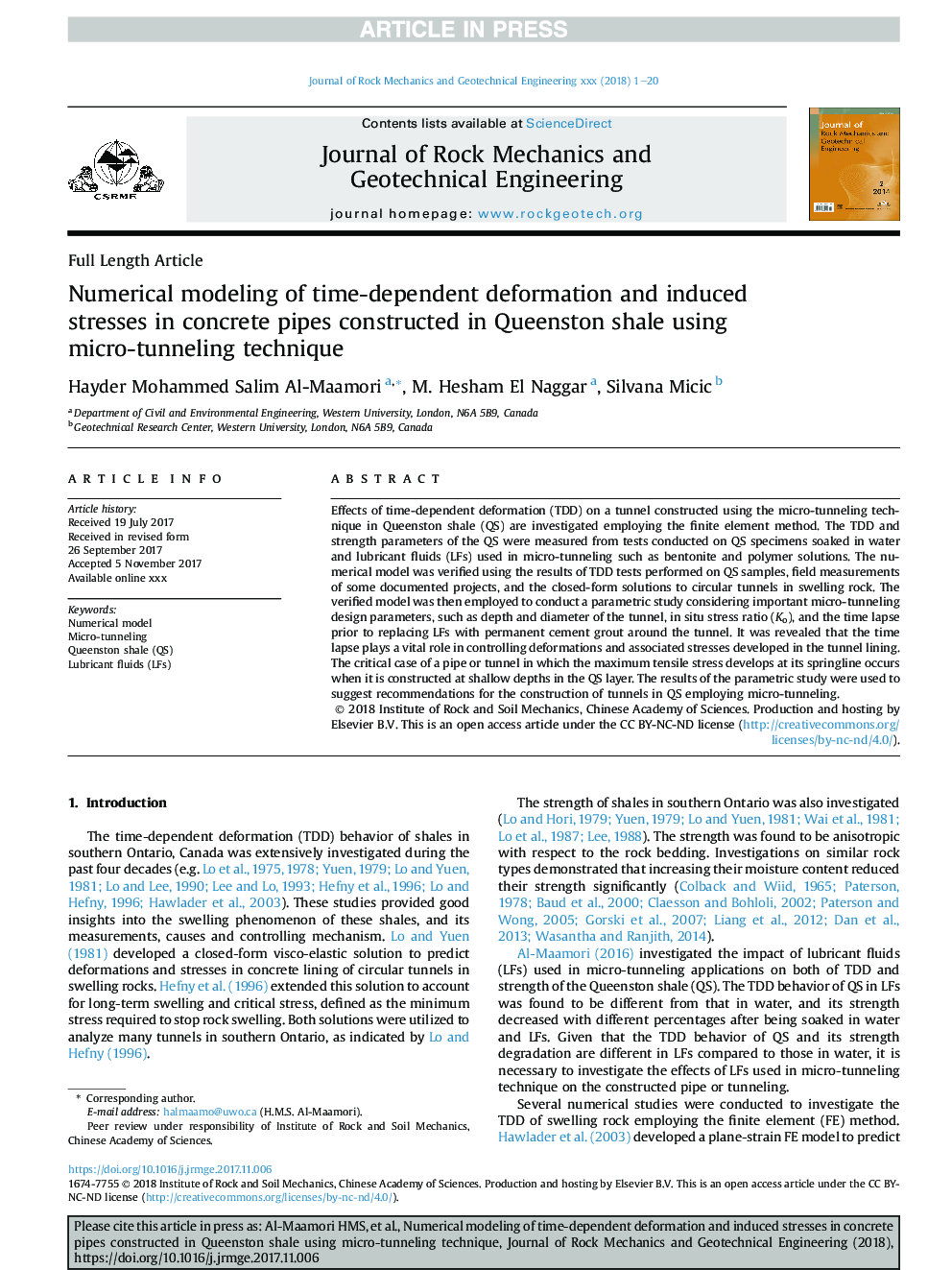| Article ID | Journal | Published Year | Pages | File Type |
|---|---|---|---|---|
| 6752298 | Journal of Rock Mechanics and Geotechnical Engineering | 2018 | 20 Pages |
Abstract
Effects of time-dependent deformation (TDD) on a tunnel constructed using the micro-tunneling technique in Queenston shale (QS) are investigated employing the finite element method. The TDD and strength parameters of the QS were measured from tests conducted on QS specimens soaked in water and lubricant fluids (LFs) used in micro-tunneling such as bentonite and polymer solutions. The numerical model was verified using the results of TDD tests performed on QS samples, field measurements of some documented projects, and the closed-form solutions to circular tunnels in swelling rock. The verified model was then employed to conduct a parametric study considering important micro-tunneling design parameters, such as depth and diameter of the tunnel, in situ stress ratio (Ko), and the time lapse prior to replacing LFs with permanent cement grout around the tunnel. It was revealed that the time lapse plays a vital role in controlling deformations and associated stresses developed in the tunnel lining. The critical case of a pipe or tunnel in which the maximum tensile stress develops at its springline occurs when it is constructed at shallow depths in the QS layer. The results of the parametric study were used to suggest recommendations for the construction of tunnels in QS employing micro-tunneling.
Keywords
Related Topics
Physical Sciences and Engineering
Earth and Planetary Sciences
Geotechnical Engineering and Engineering Geology
Authors
Hayder Mohammed Salim Al-Maamori, M. Hesham El Naggar, Silvana Micic,
